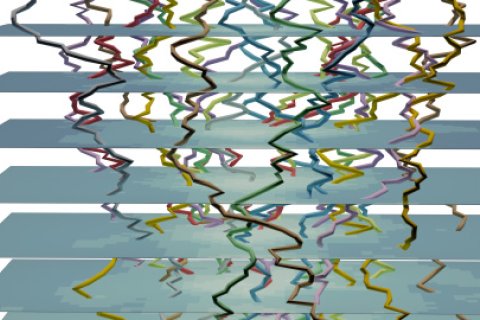The LUE modelling framework for building digital twins of large geographical systems

Computer models can be used to simulate geographical systems, allowing researchers to test hypotheses about how these systems work and to make predictions. Such models are used in diverse studies like mapping the global distribution of (scarce) freshwater resources, researching the triggers behind land use change, and calculating the exposure to pollutants by humans during the day.
With the development of the LUE modelling framework, we aim at providing domain experts, like hydrologists, land-use change experts, and health scientists with easy-to-use model building blocks with which they can build their models and digital twins of for instance hydrology or urban systems. Two aspects of LUE make it unique compared to other frameworks. First, LUE is capable of uniformly representing both discrete agents, like humans, and continuous fields, like the spatio-temporal distribution of air pollution. This allows the state of a geographical system to be represented most appropriately in a single model. Second, LUE is capable of automatically distributing calculations over the available hardware. This allows models built with LUE to run efficiently on laptops and computer clusters. How this works is hidden from the model developer.
Because of these unique aspects, LUE has gained interest from both research institutes and companies. We work closely with them to further the research and development of LUE and make sure it is useful in as many contexts as possible.
Project leader
Kor de Jong, Research Software Engineer (Physical Geography, Faculty of Geosciences)
Academic supervisors
- Derek Karssenberg (Physical Geography, Faculty of Geosciences)
- Marc van Kreveld (Information and Computing Sciences, Faculty of Science)
- Debabrata Panja (Information and Computing Sciences, Faculty of Science)
Partners
- Geoneric
- Hydrologic
- National Institute for Public Health and the Environment (RIVM)
- Nelen & Schuurmans
- Wageningen University & Research (WUR)
